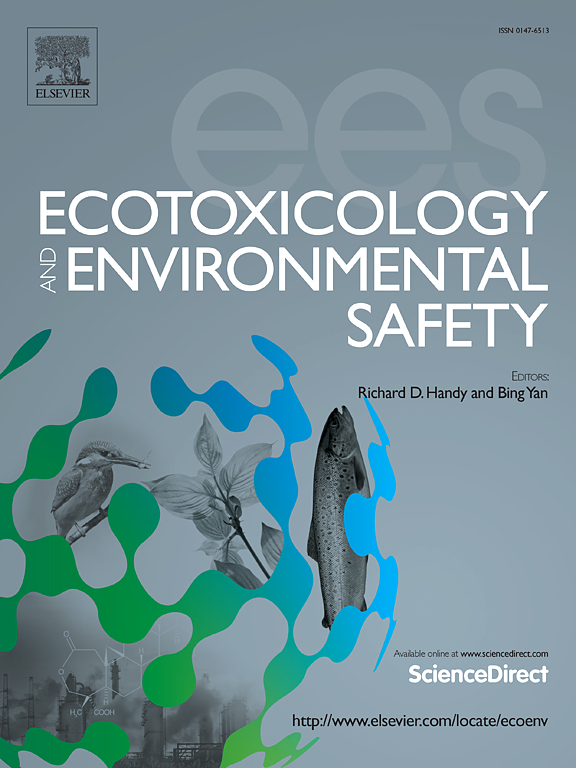暴露于微纳米塑料引起的神经毒性与脑积累和认知能力下降
IF 6.1
2区 环境科学与生态学
Q1 ENVIRONMENTAL SCIENCES
引用次数: 0
摘要
微纳米塑料(MNPs)在人类环境中的普遍存在引起了人们对其对神经健康的潜在影响的关注。曾经被认为是生物惰性的MNPs,现在被认为能够穿透血脑屏障(BBB)或通过感觉神经元通路进入中枢神经系统(CNS)。最近的研究表明,MNPs可以积聚在大脑的关键区域,如海马体和前额皮质,这对记忆、情感和执行功能至关重要。动物实验表明,长期暴露于MNPs可能导致认知缺陷、行为障碍和类似神经退行性疾病的病理特征。这些不良反应的机制可能是多方面的,包括氧化应激、持续性神经炎症、突触功能障碍和肠-脑轴紊乱。除了对神经元的直接影响外,MNPs还可能通过促进内皮功能障碍、血管钙化和小血管损伤而损害脑血管健康,进一步增加认知能力下降和中风的风险。本综述综合了环境暴露对神经积累的现有证据,为mnps诱导的神经毒性提供了机制见解。该审查还强调了关键的知识差距,并强调迫切需要进一步研究和公共卫生干预措施,以应对这一新出现的环境威胁。本文章由计算机程序翻译,如有差异,请以英文原文为准。
From exposure to neurotoxicity induced by micro-nanoplastics with brain accumulation and cognitive decline
The pervasive presence of micro-nanoplastics (MNPs) in the human environment has raised concerns regarding their potential implications for neurological health. Once regarded as biologically inert, MNPs are now recognised as capable of penetrating the blood-brain barrier (BBB) or entering the central nervous system (CNS) through sensory neuronal pathways. Recent studies have demonstrated that MNPs can accumulate in key brain regions, such as the hippocampus and prefrontal cortex, which are critical for memory, emotion, and executive function. Animal experiments have revealed that chronic exposure to MNPs may result in cognitive deficits, behavioral disturbances, and pathological features resembling neurodegenerative diseases. The mechanisms underlying these adverse effects are likely multifaceted, involving oxidative stress, persistent neuroinflammation, synaptic dysfunction, and disturbances of the gut-brain axis. In addition to their direct neuronal effects, MNPs may also impair cerebrovascular health by promoting endothelial dysfunction, vascular calcification, and small vessel injury, further increasing the risk of cognitive decline and stroke. This review synthesizes current evidence from environmental exposure to neural accumulation, providing mechanistic insights into MNPs-induced neurotoxicity. The review also highlights critical knowledge gaps and emphasizes the urgent need for further research and public health interventions to address this emerging environmental threat.
求助全文
通过发布文献求助,成功后即可免费获取论文全文。
去求助
来源期刊
CiteScore
12.10
自引率
5.90%
发文量
1234
审稿时长
88 days
期刊介绍:
Ecotoxicology and Environmental Safety is a multi-disciplinary journal that focuses on understanding the exposure and effects of environmental contamination on organisms including human health. The scope of the journal covers three main themes. The topics within these themes, indicated below, include (but are not limited to) the following: Ecotoxicology、Environmental Chemistry、Environmental Safety etc.

 求助内容:
求助内容: 应助结果提醒方式:
应助结果提醒方式:


